Jocular July at Minerva University (2024)
Europe trip with family, a practical tip for college living, four cornerstone courses, and two hundred lifelong friends
The biggest update of my month!
The personal podcast I started just a few weeks ago has been such a beautiful learning and growth experience. After having recorded twenty-five conversations with ‘jocular’ students across a diverse range of majors, institutions, countries and even ethnicities, I have some tangible progress to share with you!
Firstly, please be informed that ‘University Unraveled’ has been shortened to ‘Uni Unveiled’ as the name for this podcast, which is more brief, catchy, and captivating, according to me.
Furthermore, I have one trailer, one sneak-peak and the first five episodes published on YouTube which will (hopefully) blow your minds away…Remember, this is just a welcome dish to get you excited for the main course which will be served to your tables shortly. Enjoy!
‘Uni Unveiled’ official trailer:
‘Serene Strokes’ YouTube channel: https://www.youtube.com/@serenestrokes-inspiringchange
(FYI: The trailer should take you to the playlist which also includes the sneak peak and first five published episodes.)
A brief taste of the first twenty-five episodes which will be released, five at a time, at regular intervals starting next week:
· Sakshi Gala: History and film at NYU Abu Dhabi
· Amatra Ivaturi: Psychology at Flame University
· Christina Herold: Philosophy, politics and economics at Oxford University
· Prakhya Gadde: Architecture at USC
· Kavin Shah: Economics and math at UCLA
· Prabhath Puli: Finance at Bocconi University
· Tanvi Sriramaneni: Architecture at Syracuse University
· Raina Rao: Business and media studies at Monash University
· Daniel Mendes Jenner: Sustainability studies at Leuphana University
· Natalia Siwek: Computer science and math at Harvard University.
· Anusha Sainarayanan: Medicine at UC Berkley.
· Haoyu Wang: Statistics and global developmental studies at Swarthmore college.
· Dhriti Sonthalia: Economics at Claremont McKenna College.
· Arnav Chenamaneni: Computer science at Ohio state University.
· Mehek Sanghavi: Medicine at Curtin University.
· Rahul Tarak: Computer science at the University of Toronto
· Neil Mitra: Biomedical engineering at University of British Columbia
· Allison Xia: Business at Queens University
· Kate Wexell: Public policy & administration at the University of Missouri, Columbia.
· Madhav Dalla: Civil engineering at University of British Columbia.
· Rida Samreen: Economics at the London School of Economics
· Ashlesh Chandrapu: History at King’s College London
· Daniel Sosebee: Computer science at WashU
· Candice Shi: Biology at Wesleyan College
· Julia Ip: Business at Minerva University
Shout-out to all of these twenty-five lovely human beings who have been willing to share a part of themselves on this podcast, for the world to benefit from!
PS. Would also love for you all to give a listen to an action-packed ‘Humans of Minerva’ episode I hosted with my South African classmate, Braydon Rutherford. Learn more about Brady’s obsession with rapping, his international reconciliation work with ‘Peace players’ in Israel, and Northern Ireland, how art keeps him connected with the grandmother he lost, his take on South African geopolitics, his thoughts on Stanford vs. Minerva, the networking club he started at Minerva, his future plans and much more!
Link:
Stay tuned for another wonderful episode to be released shortly, where I had a splendid and deep conversation with Professor Levy Odera, a Kenyan political science professor at Minerva.
Until then,
Three weeks in the ‘Museum of the world’
I once read that Europe is the ‘living, breathing museum of the world’ and the phrase just resonated with me. It popped up in my head so many times during my family’s 17-day trip around Austria, Germany, and Greece. It was an intensive cultural immersion into the world of art museums, palaces, castles, opera, stunning churches, and ancient ruins like the world-famous ‘Acropolis’. All six of us had spent the last three months of summer together at home, but each tucked away in our own rooms, living our separate lives on the screen. It was heartwarming to have three weeks of devoted time, disconnected from work, to spend nearly every moment of every day with the people I often take most for granted. For me, the three-week digital detox was beyond spectacular, allowing me to look up, left, right, centre, ahead, beyond, and just about every direction possible but down at a tiny screen that can’t possibly encompass reality.
A richer life
Each day of the three weeks was a headfirst deep dive into art, history, culture, with a relentless stream of information flowing my way. It was a test of my mind to stay focused, engaged and attentive, to make an effort to relate to the tales of a people who lived in a time so detached and unrelatable from our modern world. Many a times did my eyes shut during a lengthy three-hour opera, or did my mind yearn for YouTube Shorts after a half-day spent in a seemingly endless ancient art museum. But, what this intense vacation (surely, an oxymoron) taught me was that the more diverse your passions in life, the richer your experience of life overall.
As kids and teenagers, we are involved in a hundred different hobbies from photography to chess to basketball to crosswords to sky diving, and beyond. Sadly, this list gets narrower and narrower as we age and move forward in our professional lives. As a university student, I’ve seen certain hobbies of mine drift painfully away as I am consumed by the rigour of college life – it’s been ages since I’ve played on my drumkit or picked up a fictional novel.
I challenge you to make a list right now of your passions in life, things you enjoy doing for no ulterior motive or secondary purpose/reward other than the activity itself. Also make a note of how frequently you engage with these passions. Once a week, once a month, once a year?
Life is meant to be rich, diverse, full of encounters with the ‘unknown’. We are meant to be using the entire box of crayons, not just sticking to the 1-2 colours we are comfortable drawing with. Our passions should be diverse and niche. How can you know you won’t enjoy something until you’ve given it at least three chances? Scuba diving, opera, ballet, collecting fridge magnets, pottery, calligraphy, wine tasting, genealogy, juggling – who’s to say that one of these hobbies could not well become your lifetime obsession once you expose yourself to it for the first time? Say yes to new experiences because even if one out of ten new things you try becomes a lifelong passion, it will have been worth it. The less items on your list of ‘things I don’t enjoy’, the more comfortable and joyful you will be in any situation, with any group of people, doing anything. Our Europe trip added some new life passions to my long list: opera, ballet, visiting ancient ruins, street shopping, and chatting with every single taxi driver in a new country.
What are five new hobbies you can aim to pick up or five old hobbies you can reconnect with, before the new year?
PS. The final week of the trip wrapped up with a memorable 7-day cruise to the Greek islands of Santorini, Mykonos, Thessaloniki, and Ephesus (Turkey) – a wonderful way for us all to reconnect with the might and grace of the open ocean. The icing on top was that we were joined by four other families, who had all planned the cruise together to celebrate the 20-year reunion of five ‘friends turned brothers’ of my father (along with their wives and children) who all met during their MBA program at ISB, Hyderabad. As I write this, I cast my mind to the year of 2047, 20 years after my graduation from Minerva and wonder where each of my classmates will have reached in their lives and careers.
Hoping to plan a similar such experience for the entire Minerva class of 2027, because I’m sure that if a year-long MBA program forged such deep relationships, four years and six countries will bond our class for a lifetime!
A practical tip for college living
Office hours
Through my podcast, ‘Uni Unveiled’, I’ve been fortunate to speak to university students across majors, countries, institutions, and ethnicities. A question I love asking on the episode is ‘What do you think is the most underrated resource at your university?’. More than half of my guests have brought up ‘Office hours’.
At its core office hours is simply a time beyond the lecture to engage with your professor / Teaching assistant. Let’s break the misconception right here and now, that you only need to show up to office hours if you have doubts directly related to class content or an upcoming assignment. I believe you should show up just for the sake of it! It’s the best possible opportunity to differentiate yourself in front of a professor who teaches hundreds of students every day and probably doesn’t even know your name.
Take a moment to introduce yourself, seek personal and professional advice, question them about their professional journey, research, and thoughts on macro discussion topics. Go into office hours with one simple intention: building a stronger connection with a person who can potentially open up many doors of opportunity in your life, if only you make the effort to show them you care. Office hours is also a fantastic way to find new like-minded friends, who are also showcasing their proactiveness and enthusiasm just by ‘being there’.
I get that’s its scary to be sitting in a room, sometimes one-on-one, with a person who seems almost ‘god-like’ in your eyes. But even a professor is human and they interact with students every single day so trust me when I say that they know how to hold a conversation with a Gen-Z. I’ve entered office hours well prepared with questions about a professor’s course content and research, but have spent nearly an hour being questioned about life in India, my future plans, homesickness at university, my daily schedule, etc. just like I was talking to a friend.
You are investing money, time and effort to be in an institution that gives you access to bright minds who have devoted their entire careers to diving deep into a field of study – seize this opportunity! As a social sciences and humanities students, I’ve nonetheless booked time on the calendars of computer science professors to talk about AI, or biology professors to talk about CRISPR. Pick their minds about topics you don’t fully understand or don’t have a refined opinion about, because truly what more can you ask for when you are receiving years of accumulated knowledge distilled in 30 minutes?
Academics at Minerva – Cornerstone courses
HC highlight
Empirical Analyses – #bias mitigation
#biasidentification is just the first step of the process. Having the self-awareness and presence of mind to catch the mind when it begins to wander astray is immensely difficult, yet still not sufficient because of the GI Joe fallacy, which states that even being aware of a bias does not make us any less susceptible to it. There are practical strategies and heuristics which can be used to reduce or prevent the harmful effects of biases, and it truly surprises me why these concepts were never once mentioned to me through 12 years of schooling, when just one class on #bias mitigation truly altered the way I view the world.
Real-world examples:
Let’s run with the singular example of a business entrepreneur who has conducted extensive research and found that the major cause of declining sales in their business is lack of brand awareness among customers. Having invested a great deal of time, money, expertise and effort into this research, the entrepreneur is nearly certain that is the problem, and is about to invest significant resources into promotional activities, but also wants to ensure that his personal biases have not clouded his judgement.
He employs certain bias mitigation strategies to double check his findings and opinions:
1) Considering alternatives: He considers alternative potential causes for the drop in sales. He collects data and makes strong arguments for why five other potential, un-related factors might have caused the issue.
2) Dual verification: He asks his Vice President to conduct the same investigation, without any knowledge of his own research and findings. At the very least, the Vice President will bring a more nuanced perspective to the table, and certain valuable opinions of his own. Findings can be compared to see if they support or contradict each other, and then further action can be taken as necessary either to continue in the same direction or take a step back and invest further into research.
3) Time delay: The entrepreneur takes a few days off work to chew over his research with a more detached lens. This also gives his time to refresh his energy after two long weeks of work and minimal sleep, so his emotional state is more balanced and positive before making a final decision.
4) Being data-driven: As a marketing MBA himself, the entrepreneur is excited to get creative with the business’ new ad campaigns, but he reminds himself that the numbers don’t lie. If marketing is already eating up the highest portion of the firm’s budget, is it really wise to invest further resources into the department? For that matter, the high labour turnover rates of salesmen over the last year also need a closer look…
5) External feedback: To collect more objective, outside-perspective data, the firm launches a survey to customers to evaluate overall customer satisfaction with products and services. Having no ulterior motive other than their own utility, customers are emotionally detached from the day-to-day challenges of running this complicated business, and provide their two cents fairly objectively.
Student spotlights
Mara Dumitru (Canada/Spain/Romania)
PS. To explain, my parents are both Romanian, but I was born in Canada hence I have a Canadian passport and citizenship, while I’ve spent most of my life in the Canary islands (Spain). ‘Everything is home and nothing is home to me’, and I really don’t know how to feel about that. For that matter, after Minerva, add San Francisco to the list too!
Self-study at Minerva was definitely a new experience for many of us who were used to being spoon-fed information by our teachers in school. Not for you, it seems. Tell us about the motivation to, and the journey of being home-schooled all your life.
For sure! My homeschooling journey began at age five, all the way to my high school graduation. So essentially, I’ve never had the traditional schooling or classroom experience throughout my 12 years of education. This was a conscious decision taken by my parents because they really appreciate the numerous benefits that homeschooling has to offer for a child’s holistic growth, beyond just the academic angle. My parents are both software engineers, who went through college at just the right time when computers were first introduced to Romania, and so they were technically among the first batch of people in the country to pursue computer science. For decades, they have worked remote jobs and loved to constantly travel, hence I’ve lived in Spain, Romania and Canada for different parts of my life.
The #1 advantage is straightforward: flexibility and autonomy with my daily schedule and the activities I choose to prioritize at different stages of my schooling journey. From a young age, my schedule has been jam-packed with extracurriculars like deep reading, tennis, swimming, gymnastics, chess, piano, art, etc. I also made the personal choice to focus and dive deep into subjects I was passionate about like math and computer science, while leaving various subjects at a basic level and choosing to not pursue them further due to lack of interest, like history and geography.
I had the world at my fingertips on my computer so Khan Academy, YouTube, textbooks, Duolingo, were my best friends for many years of my early life. I also enrolled in various courses and home-schooling programs for certain classes where I felt it would be beneficial to have a human teacher and classmates to discuss concepts with.
I have a flair for working with numbers and solving challenging math problems, hence I’ve participated in many international math Olympiads, which also becomes an accurate test of my knowledge compared to a child of a similar age and grade.
One huge advantage of homeschooling was that it taught me to thrive in highly flexible, unorganized, uncertain environments and stay disciplined, motivated when it was extremely easy to get distracted and lose focus. This helps me at Minerva where we must learn concepts through intensive readings prior to class, requiring 2-3 hours to prepare for every 90-minute class – I know how to teach myself hard concepts, where to seek better understanding on the internet, and I thrive with ambiguous assignments. Furthermore, I developed a deep emotional bond with my brother and sister who were both also home-schooled, as the three of us would often sit and learn concepts together, clarifying each other’s confusions and queries along the way. This experience made me an ideal candidate for my peer tutor work during the entire first year at Minerva, where I taught Python programming to students with no prior exposure to the field, for my work-study.
Diving deeper into your whimsical obsession with numbers, share with us your experience being a mentee at the University of Toronto Math Mentorship Program under mathematics professor, Dr. Zack Wolske. What did you gain from this program?
I took virtual math classes with the University of Toronto in high school. Because I performed well in class and showed high enthusiasm, I was invited to this selective program where I had the opportunity to conduct research into a math concept which piqued my curiosity. I adore complicating simple things, so I decided to complicate the very simple game of ‘rock, paper, scissors’, played by children worldwide. I expanded this simple game of three objects to a truly mind-boggling game with four, five, six, and more objects. What happens when you add a hammer to the mix? A spoon, fork, and knife? As you increase the number of objects, a simple game based on pure luck requires deep game theory, graph theory and linear algebra to solve the puzzle. The game becomes unfair with certain objects being more likely to win a point compared to others, hence I had to create a matrix of 1’s and 0’s, add in probabilities, and multiply them, to figure out the best possible option for different rounds of the game.
We found very few people who have dived into this research area as we scoured the internet, hence we made a final presentation about this idea and presented it to our peers and the professor. Hopefully, in the near future, I can think more deeply about this concept and publish a proper research paper!
As I dive deeper into math, I see clearly how nature is such a brilliant mathematician. If you count the spirals on a pinecone, it will always be a Fibonacci number. All circular leaves on a plant are titled at the golden angle (approximately 137.5 degrees) to maximize the sunlight they can consume. The golden ratio can be found in the faces of people whom the world ranks as highly attractive.
You’re a highly quantitative, technically-minded individual but of course, that hides a completely different side of you, which is ‘Mara the artist’. Speak to your personal relationship with visual art and music, and what art has taught you about life at large.
When too much math fries my brain, I can’t possibly turn to science or literature or history to give myself a mental break. And so I turn to art.
I dislike being told exactly what to do, in an assignment or life at large. Hence, I began my journey in art by despising my art classes because my parents or other art teachers would tell me what to draw/paint. I quit for several years. However, my passion for art blossomed when my parents hosted three artists from different parts of the world at our home for a few days, who helped open my eyes to what the true power of art in creating ‘meaning out of meaninglessness’.
I am highly experimentative with my art. With my best friend, we would both paint on a canvas for three minutes, then switch and paint on the other’s canvas for three minutes, and so on until we had a finished product. In fact, a few years ago, I set myself the challenge of painting 100 canvases in a year, which ended up with 156 works of art that today decorate every square inch of my home. Great art for me is not something which pleases the world or which everybody understands, but which puts a smile on my face because I feel satisfied about expressing whatever I needed to express on that specific canvas.
With regard to music, I will begin by saying that I have listened to my favourite song over 1,700 times thus far. I associate songs with places, people, certain emotions, memories – basically, listening to music is the easiest way for my nostalgia to kick in. Through music, I have also connected with the cultures and people of all three countries which I call my home: Romania, Canada and Spain.
I have been playing the piano since age 8, then moved on to the violin and clarinet which I played for six years in an orchestra, I simultaneously joined the choir for seven years, and I gave up on the ukulele after a year of suffering. Because I’ve played such a variety of instruments, I can often distinguish most of them when listening to any song – I can break the song down into its pace, melody, rhythm, and different sections, and then piece everything back together to find a deeper meaning and connection with the music. Of course, I’ve learned that analyzing silence is sometimes even more important than analyzing sound.
Music has created innumerable vivid memories in my life, like marching down the streets of Spain on religious holidays, at six AM, furiously playing my clarinet. Or the song ‘Riptide’ which has now become a favourite at Minerva community events and reminds us of the serendipity that ties us all together just briefly, for four years, in our individual life journeys.
Wrapping up with an innovative technical project you worked on during your time at The Knowledge Society (TKS), what was your moonshot idea to address the problem of land degradation in Australia?
During the year-long TKS program (a STEM program cum human accelerator for teenagers), we wrap up the year with an exciting, month-long, moonshot challenge. The inspiration for the moonshot challenge comes from Google’s moonshot factory, which focuses on ‘developing ambitious, forward-thinking projects with the potential to innovatively solve global problems’. Our instructions for the moonshot are simple: come up with an innovative, novel solution to a global problem that affects more than one million people, and solve this problem 10x better than the world is currently solving it. Not 10% better, but 10x better. Not incremental, but radical – and those two mindsets just cannot co-exist in the same room!
My Australian teammate quickly brought up the painful issue of land degradation in her country, resulting in lack of nutrients in the soil to grow crops, which severely affects farmers across the country and poses a long-term food security challenge too. We worked to find a way to inexpensively preserve soil quality while allowing native species to come back to the land for biodiversity of crops. We created the concept and formulation of a mulch (a protective layer of material spread on top of soil), which was sustainable, cheap, and simply used the grass from peoples’ lawns after mowing mixed with certain basic ingredients to enrich the nutrients of the soil by 10x. Furthermore, our mulch balanced the pH of the soil, and prevented any toxic fumes contained within the soil from being released into the air. We spoke to tons of industry experts and professionals who approved and certified our idea, which we hope to actually bring to life someday, possibly in the form of a company.
My biggest takeaway from the project was that sometimes, too many cooks ruin the soup. We began with a team of six people, who one by one, lost interest, dropped out, became inactive, forcing us to ultimately take the project forward with just the two of us – overall, not a bad job for a 13 and 15-year-old with four weeks in hand, and the power of the imagination.
Emma Zhang (United States)
You’ve authored and published nine books, which honestly makes me think twice about the intensive bragging rights I have over my three published novels. Summarizing the plot of each of these books here in this newsletter will quickly become your tenth novel, so instead I would love to ask you to describe the high-level process of authoring a typical fictional book, right from the initial idea to publication.
Good decision, Arya! I’m excited to answer this question in the hope that readers realize that authoring a book is not as complicated as it seems, once you take the first step!
Every great book begins with a spark. An initial idea that catches your interest immediately and feels like something worth sharing with the world. This idea could come from a dream, another book/movie, a vacation, personal introspection, etc. I often like to let this initial idea sit in my mind for a few weeks to let it flesh itself out, so I have a clearer vision of where the project will go. Not every idea has the potential to be a full-length novel; some are great short stories of just a few pages, and that’s perfectly fine! If you’re making the firm decision to write a book, I suggest putting it into writing and informing friends and family to keep you accountable – this will be so valuable during that mid-book burnout stage!
The planning stage looks very different for each author. Some authors will plan the entire book, chapter by chapter, before even writing the first word, because they like the structured approach. For some, they start out with a rough idea of the entire plot and each chapter, but allow themselves room to be flexible with minor changes as they write, because some peoples’ creative mind works best only when they put pen to paper, not before. I find myself somewhere in the middle here. I tend to have a clear general outline of the plot, resolution, major conflict, and main characters before I even write the first sentence of my novel. However, for every individual scene, I boil it down to just 1-2 sentences (the main message), but then allow myself flexibility with my writing style and all finer details as I ‘go with the flow’.
Mid book-burnout is so real, but my best advice is having the clear plan in mind so you know that there is a finish line to reach. In my case, a daily writing habit every night before I go to bed has been invaluable; sometimes its five pages, sometimes its just 100 words, but I don’t let myself sleep until I’ve written something. It’s like training a muscle in the gym – the days you write even when you don’t feel like writing, are what count the most!
Once your first draft is ready and you have received initial feedback from trusted friends, family, mentors, you make a decision about traditional vs. independent publishing.
With traditional publishing houses, you draft a query letter, synopsis, author bio and send it to literary agents, then wait to hear back from them with their offers. Literary agents help you with a professional perspective on your writing and major editing, which increases your chances of receiving replies and offers from big publishers vs. just e-mailing the publisher directly which is a less successful route, generally. Once the publishers approve of the book and finalise an offer with you, you are mostly out of the equation. They will take care of the final cover design, printing, publishing and promotions. If all goes well, you will soon receive the fruits of your labour in the form of both fans and finance.
With independent publishing, there is more creative freedom but also effort, to take the work to the finish line, allowing you to truly fulfill the ultimate vision you have for the book, and stay involved in every minuscule detail. Formatting on the PDF is your work, and so is cover design and printing. You can definitely find independent editors for an outside opinion on your writing style, as well. Once the book is published, marketing and sales are your responsibility but 100% of the proceeds are in your bank account too, so its definitely a give and take.
I have written every single day for the last four year and it has paid off. The biggest motivation for my writing is not the fans or the sales or a fancy resume. It is all those young kids who have reached out to me since, and expressed how I inspired them to write their own books, because all they needed was to see that it could be done, because ‘age is just a number’.
One of your favourite genres both for reading and writing is military fiction. You took your research a step beyond the internet, by actually signing up for the California army national guard to gain a firsthand experience into military life, tactics and values. What was the experience like?
I met a military man at an academic conference, and as we were casually becoming friends, he invited me to a training session with the national guard after seeing my enthusiasm for military history. I tried to be as involved as possible, going to the training drills every month without fail and engaging with as many military men and women as I possibly could. It was like a childhood dream come true for me, being somebody who had grown up with a fascination for WW1 and WW2, and various military tactics like ‘Blitzkrieg’. For research purposes, I paid close attention to the national guard culture, the jokes that were cracked, the slang that was used, the way training and drills were conducted, etc. I kept going back for four months in total, participating alongside these strong, brave, disciplined men and women as they engaged in land navigation, obstacle courses, jujitsu, team building exercises, map reading, physical and mental strength building exercises, etc.
It was refreshing to meet people from such diverse backgrounds, coming from all over the country. Each person has a different motivation for joining the military, and there are so many roles and responsibilities in this huge ‘machine’, that there is a job suited for every single candidate. In our highly individualistic country with a culture of being somewhat self-centered, it was heartwarming to see unity, camaraderie, and community play out right before my eyes. I left each training session not only with detailed research notes that would aid in grounding the military fiction novel I was working on in reality, but also with a renewed sense of patriotism, determination and hope for ‘the American dream’.
I want to highlight a different side of you on this newsletter, beyond just the creative author. I would love for readers to see Emma as the technical entrepreneur she also happens to be, and hence, kindly pitch to us your blockchain-based Startup, Cypher, which also happened to be among the top 10% of Y Combinator applications in its year.
Cypher’s inception was in 2021, based on the single basic problem that it was difficult for writers to earn money and succeed financially. By this time I had already completed my third novel and realized that it was difficult to generate sales despite an engaging plot and intensive promotional activities. Less than 1% of writers earn enough to be able to write full-time. And independent publishing isn’t exactly democratizing the earnings as much as it theoretically should, due to various factors, most notably because writers need to have a well-established reader base in order to earn well, which takes time, effort, resources and a fair amount of luck. Genres stay popular only for certain amounts of time and super niche genres just don’t sell well, the data shows. Me and my co-founder truly believe that each high-quality book has numerous readers who will be a great fit, the challenging part then being connecting that author to those hundreds of thousands of potential readers who would be willing to actually buy his book.
Our initial name for the venture was Quillmates. Quillmates was a blockchain-based platform which sets up a creator economy which readers invest in, with a tipping model. Readers leave tips for authors whose writing they enjoy. Part of that investment is split with all previous investors/tippers, hence now there is an incentive for a tipper to market and promote a book to all other readers, because if they tip, he/she also receives a share of the income (future tips as revenue generation). Cypher follows a very similar concept, simply using a more sophisticated mathematical model alongside cryptocurrency and ‘micro transactions’. Since neither me nor my co-founder had the technical know-how to build the entire platform, we took the path of building a detailed Figma prototype with some functionality. Months later, we finally decided to outsource the software development to the professionals, and fast forward to today, we have an active Git hub with all the code viewable to readers.
My biggest piece of advice to any young entrepreneur is to take advantage of your age – people should invest in you because of your age rather than despite it. In spite of lacking the experience or knowledge in certain domains, your zeal, enthusiasm, ability to work long days, should make up for all that. You have a long journey ahead, so even if your first venture fails at 17, you have so much time and energy to build the next successful one.
Book of the month
Movie of the month
Poem(s) of the month
Let’s change things up this month, shall we…. For all those of you sick and tired of reading my free verse, for your enjoyment, amusement and critique, here are some haikus:
City life
The bustling city
The loud noise engulfs the quiet
Whispers of my heart
Foreigner
In an unknown place
Different language, traditions,
Food, folks …. I feel lost
Panic
Panic engulfs all
All race away, not seeing
The child left behind
Wind chimes
The wind chimes playing
Air fills them with merry tunes
Melodies drifting
Dance
Swinging to the tune,
Dancing carries away all the
Dread of tomorrow
Diary writing
The thoughts swirl around
Waiting to leave my cramped mind
Pour out on paper
Bitter anger
My best friend calls me
We have not made up after
Our fight….I stay put
First date
I dress formally
Double-check my suit, hair, tie
Please smile. I’m nervous.
Relief
I call for my mom
Amongst a sea of people
Finally, her voice
Anticipation
Alert eyes, clenched fists
Each waiting for the other
To deal the first blow
Wow! That was long. Thank you so much for being patient with me and reading (or skimming) to the end.
Please subscribe to my monthly newsletter if you would like to stay updated on my monthly adventures as I travel to six global cities (San Francisco, Taipei, Seoul, Buenos Aires, Hyderabad and Berlin) over the next three years with Minerva University. Until then, Au revoir!
PS. Less than thirty days to Taipei! Bubble tea, here I come!
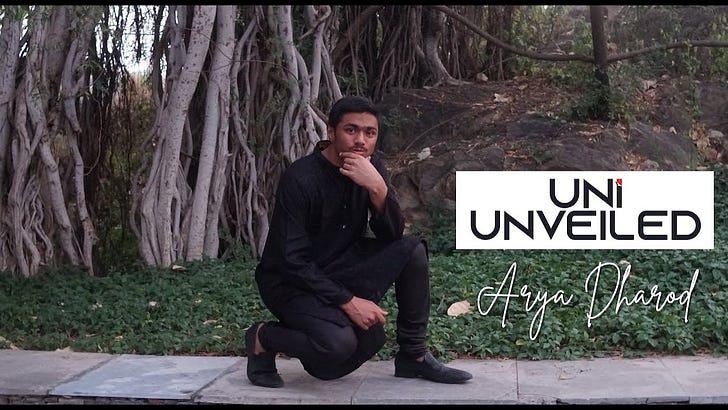




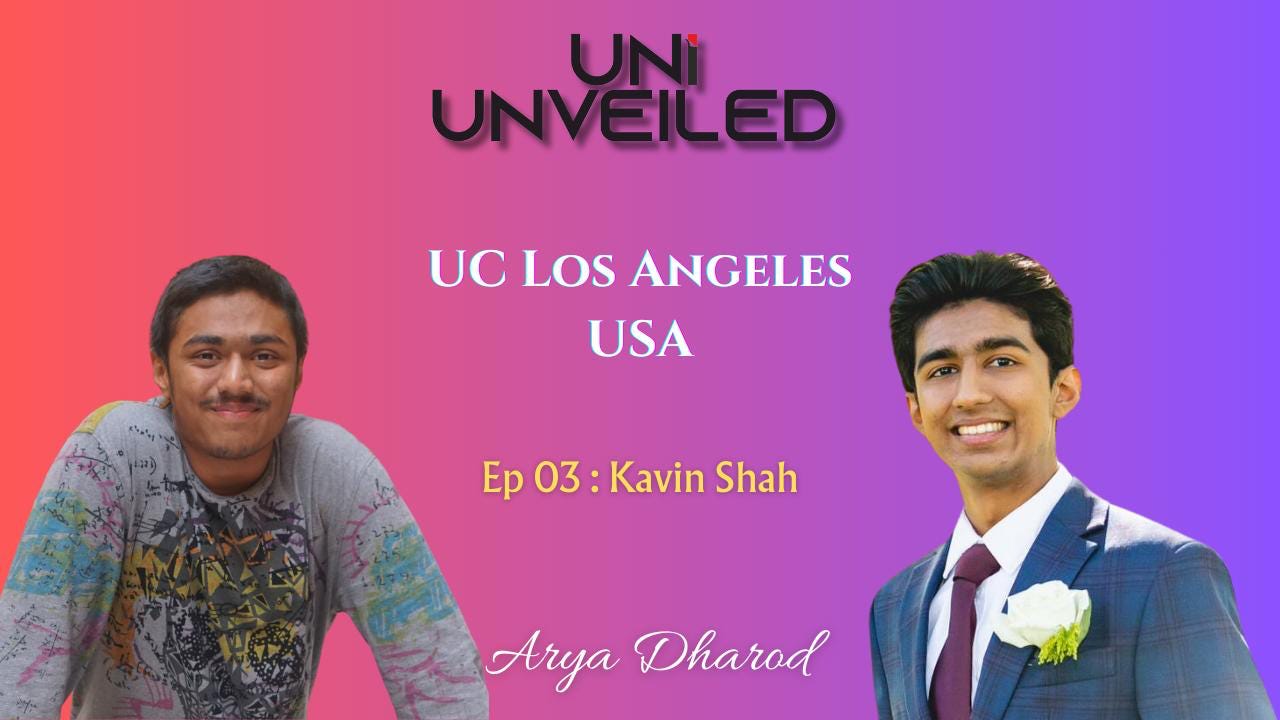
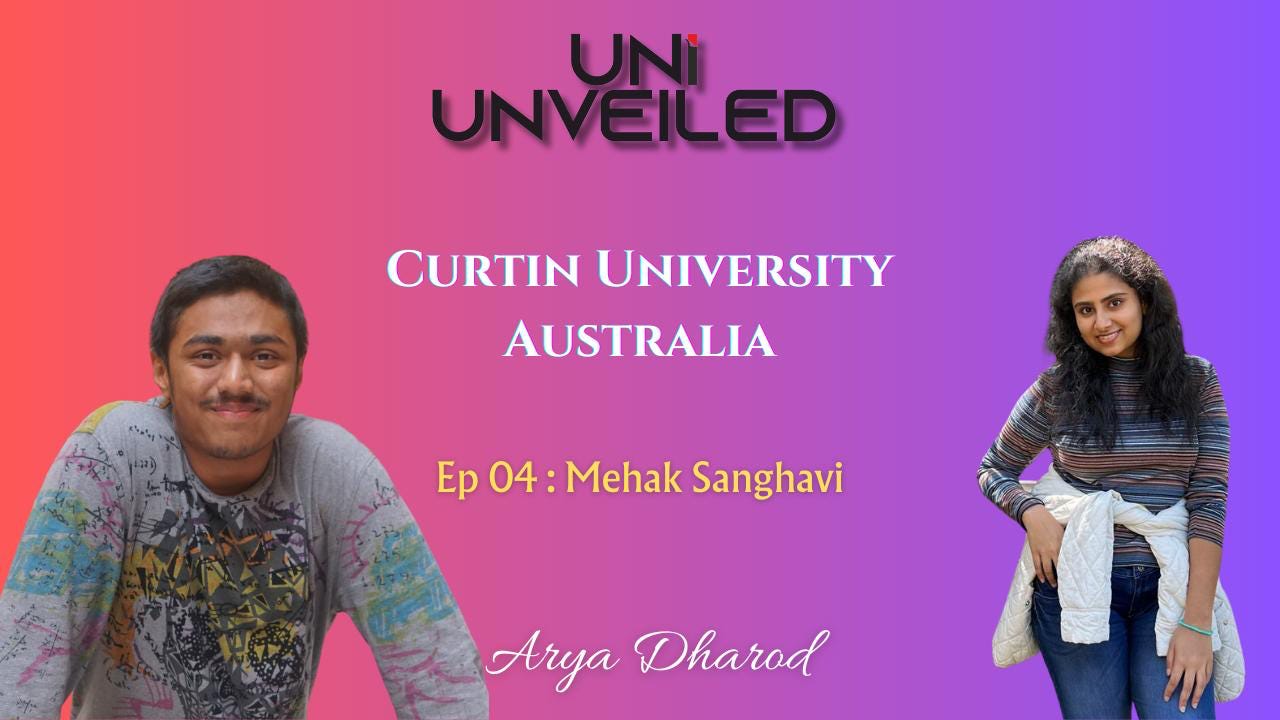
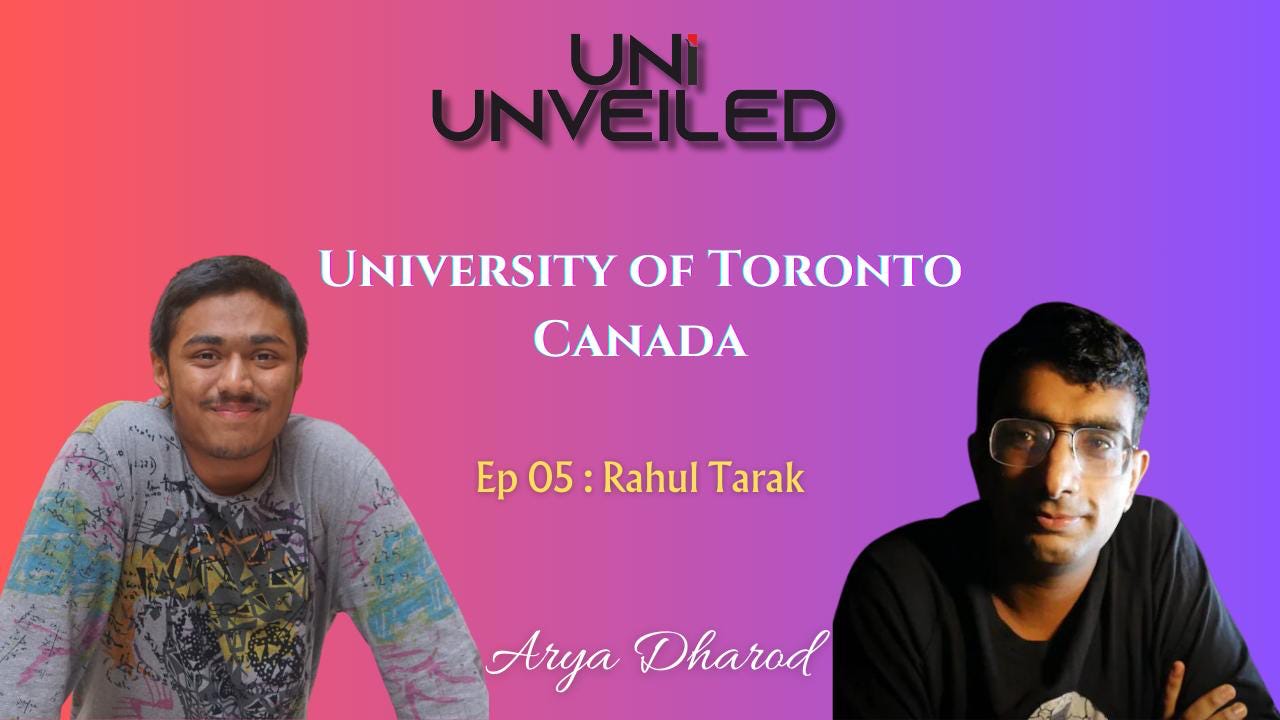






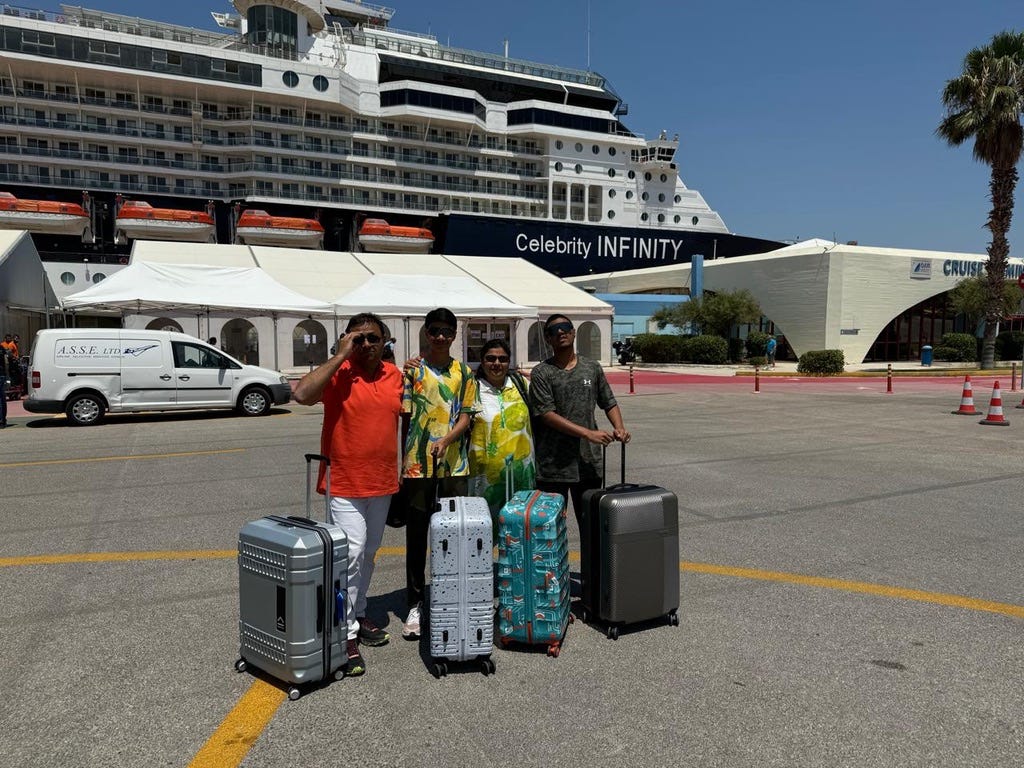
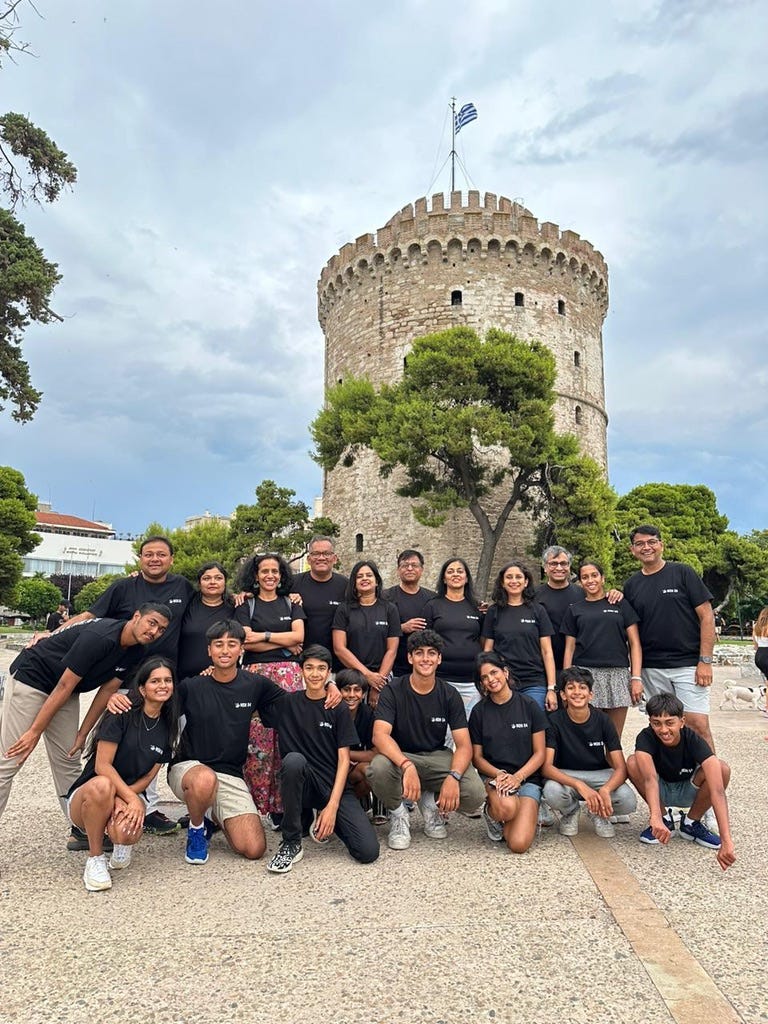

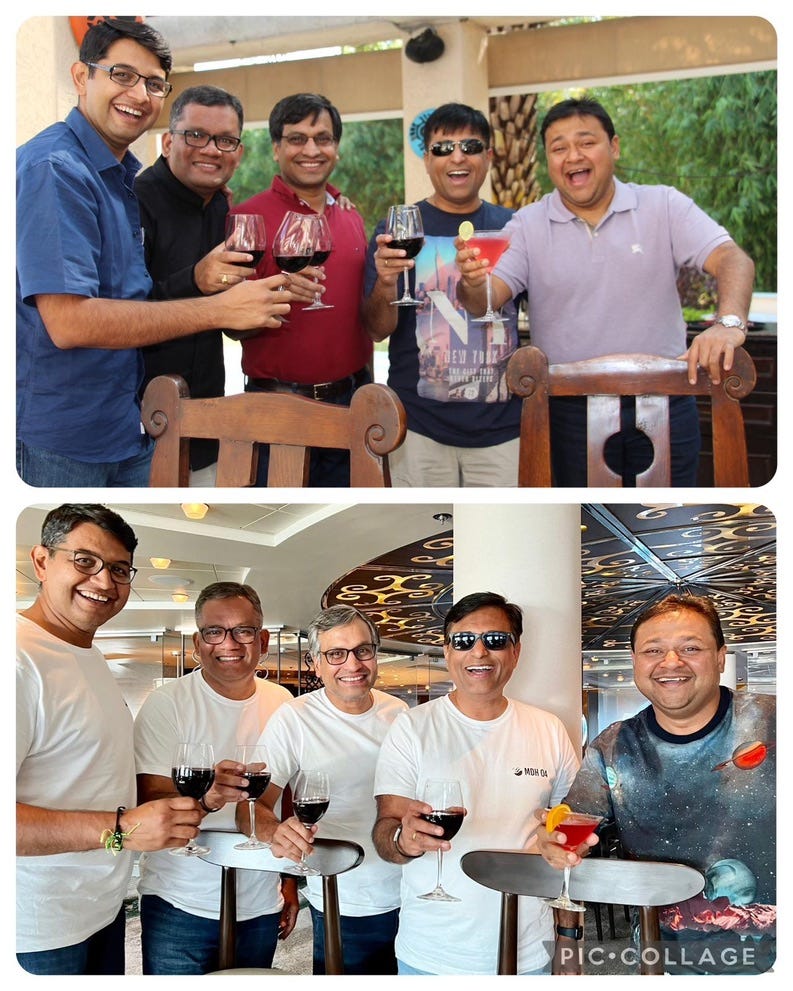
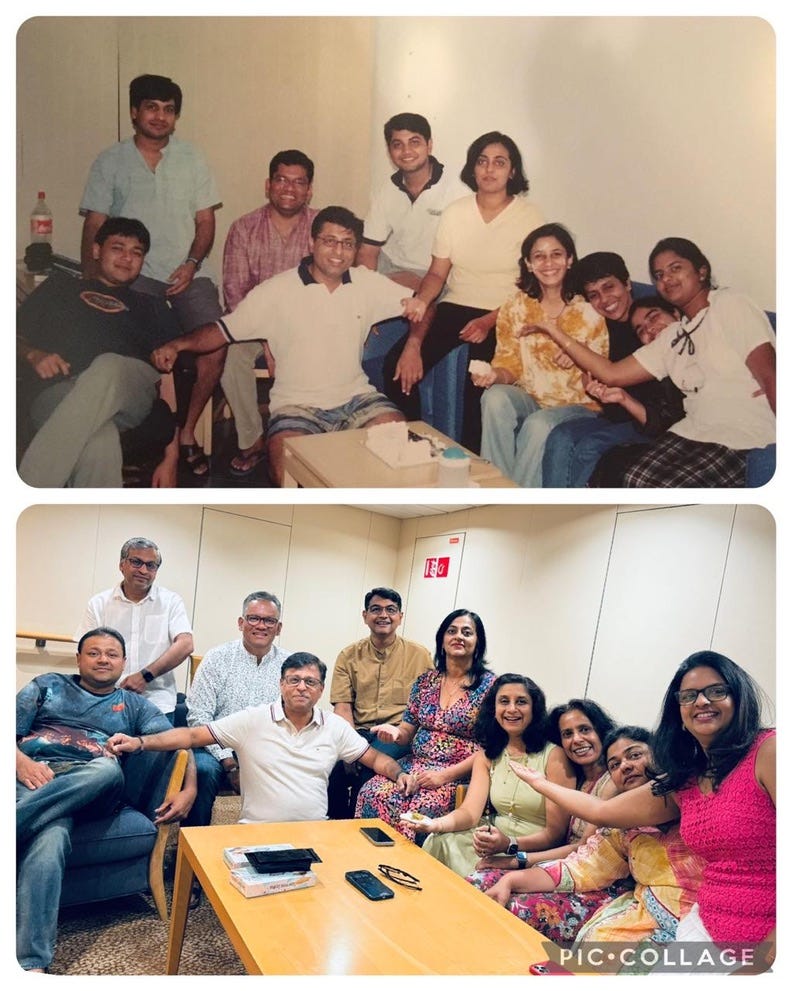
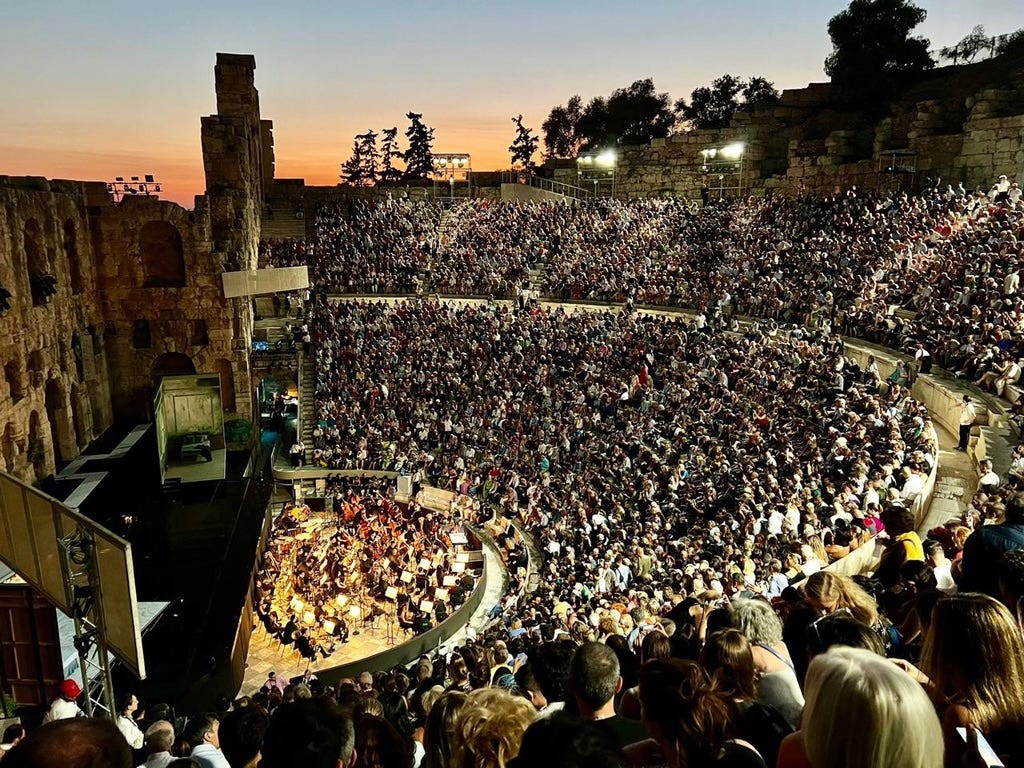
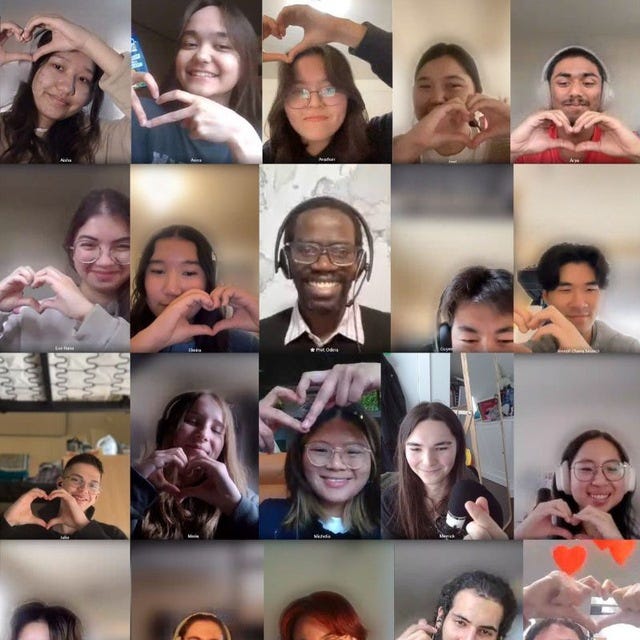

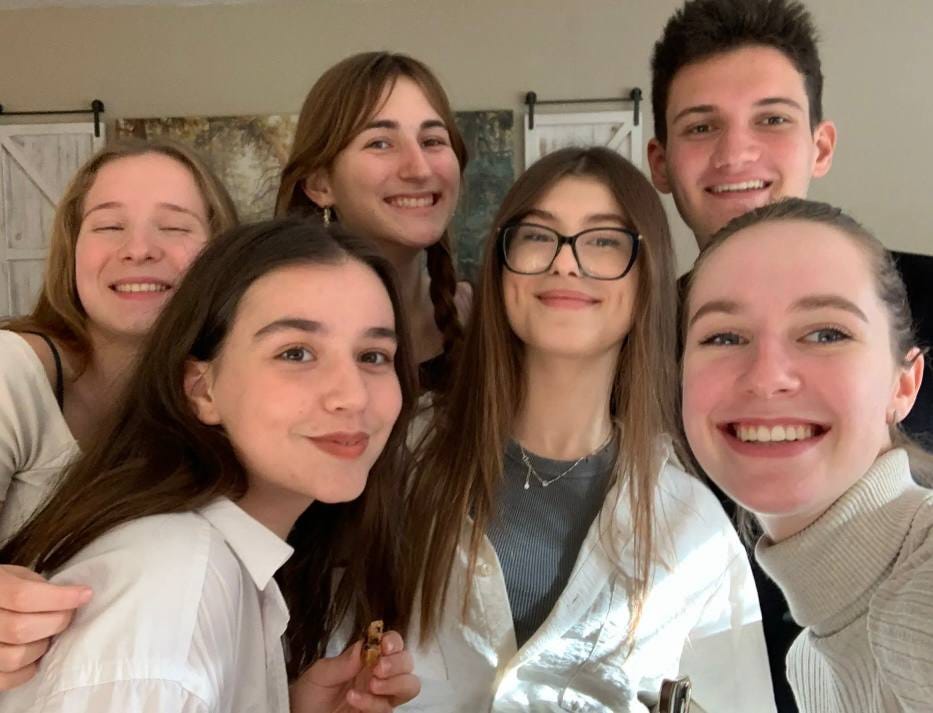
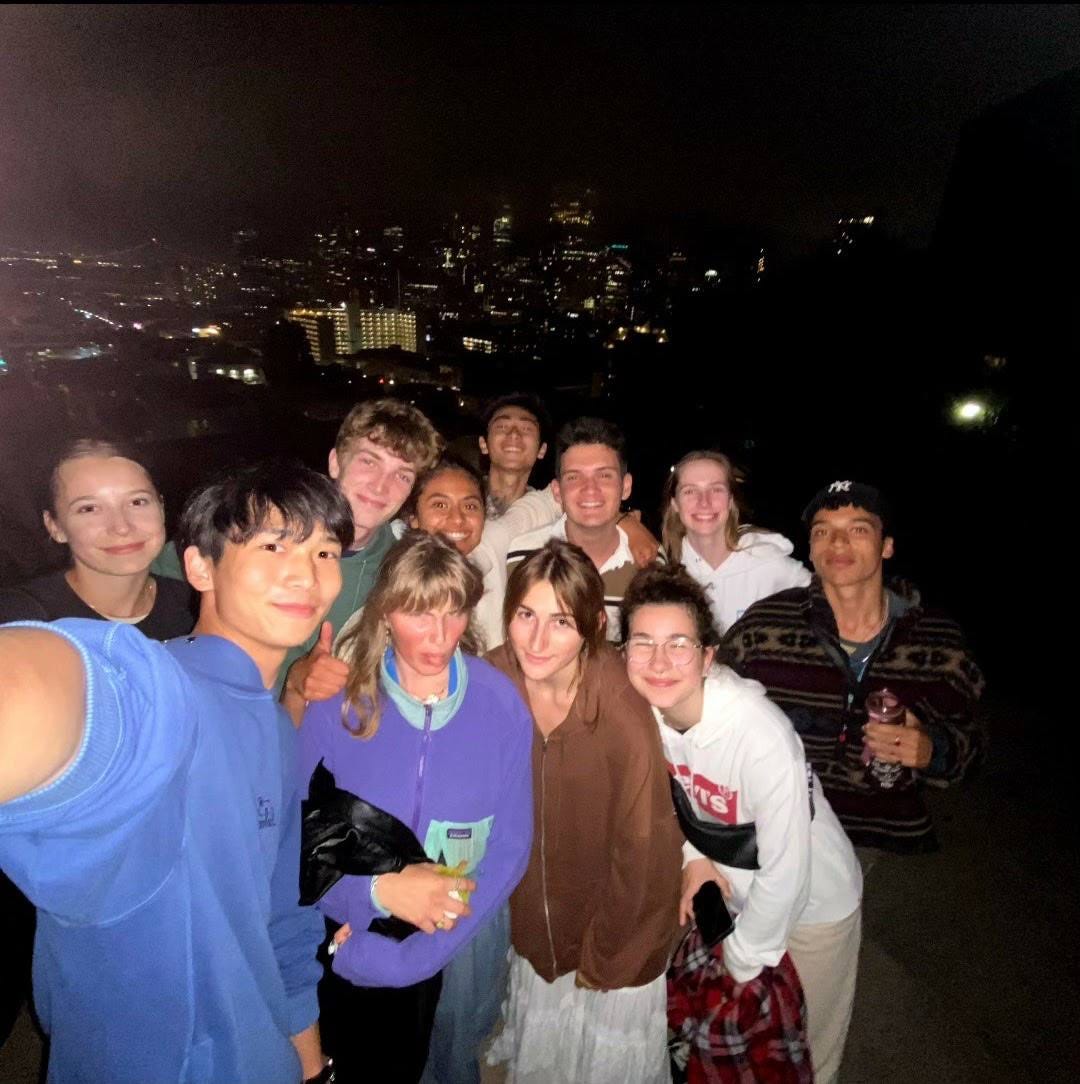

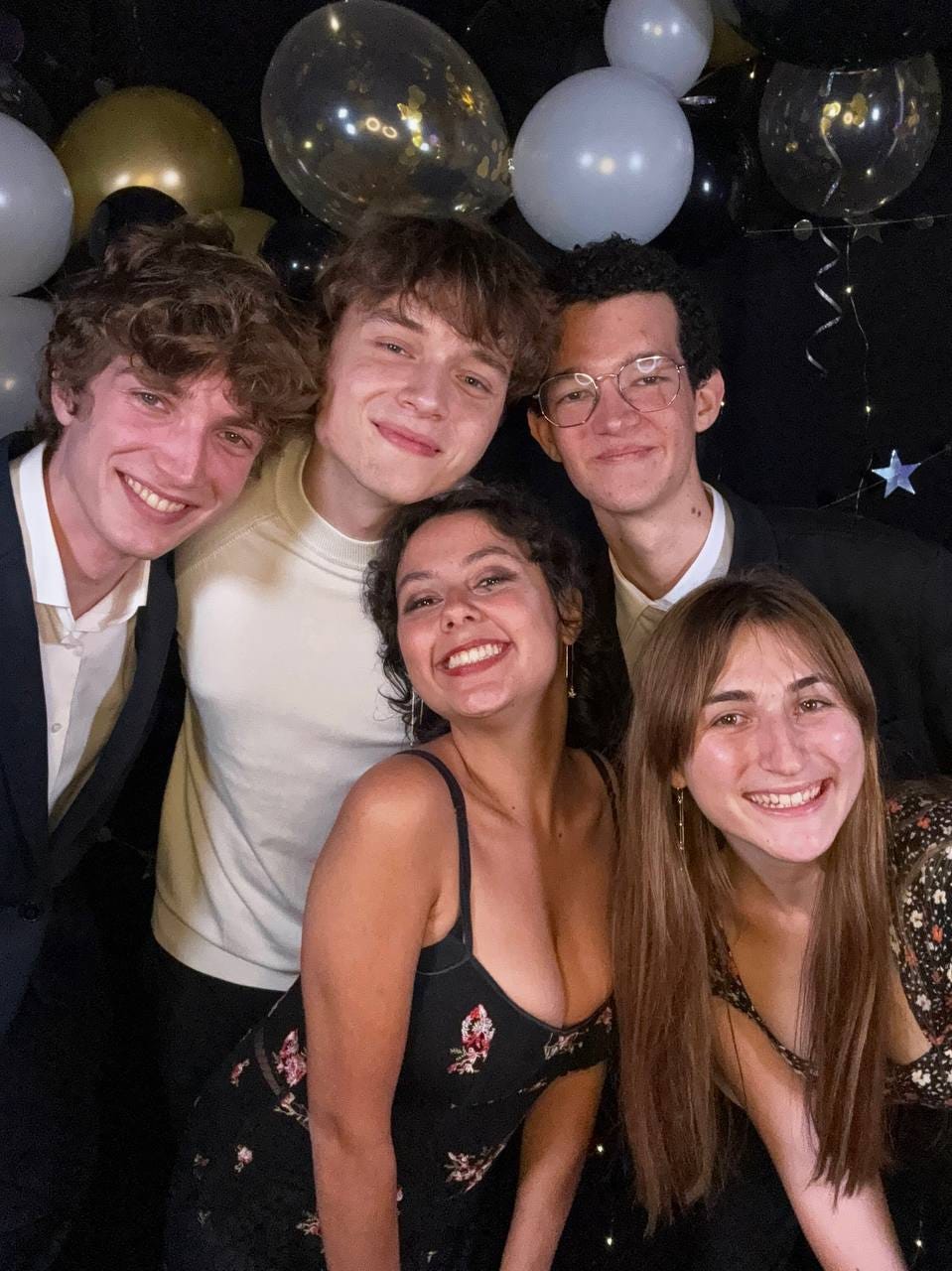
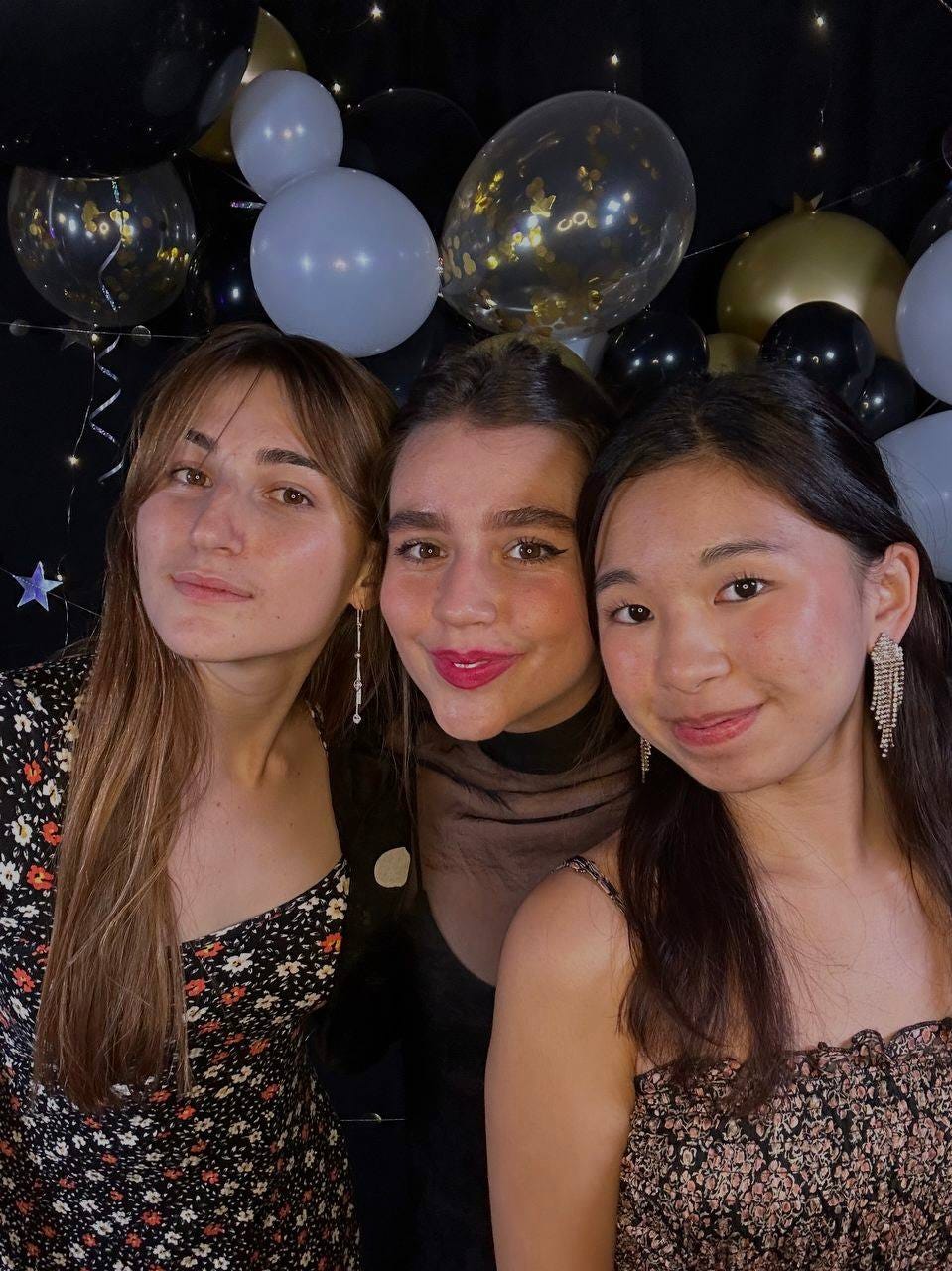
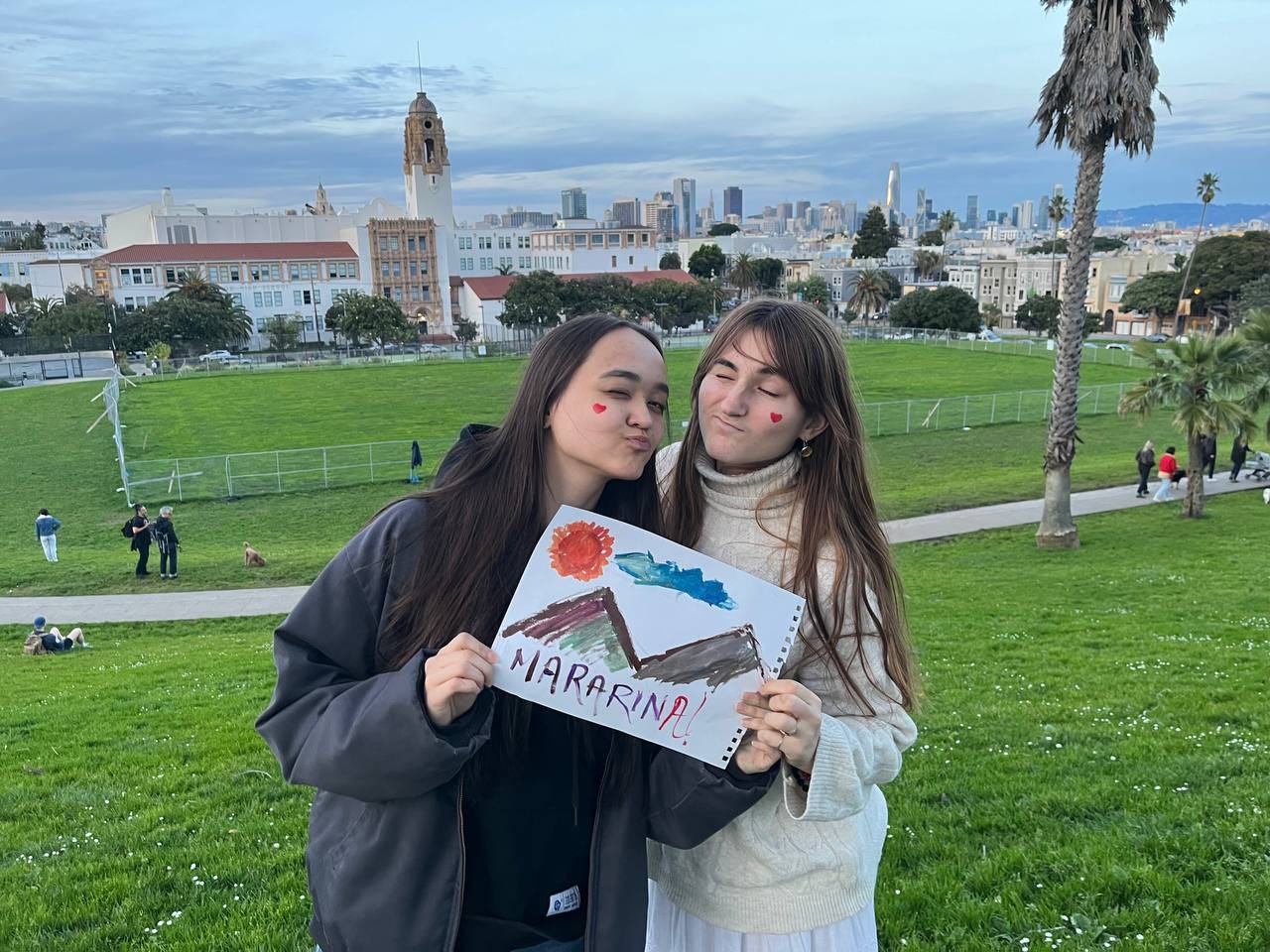
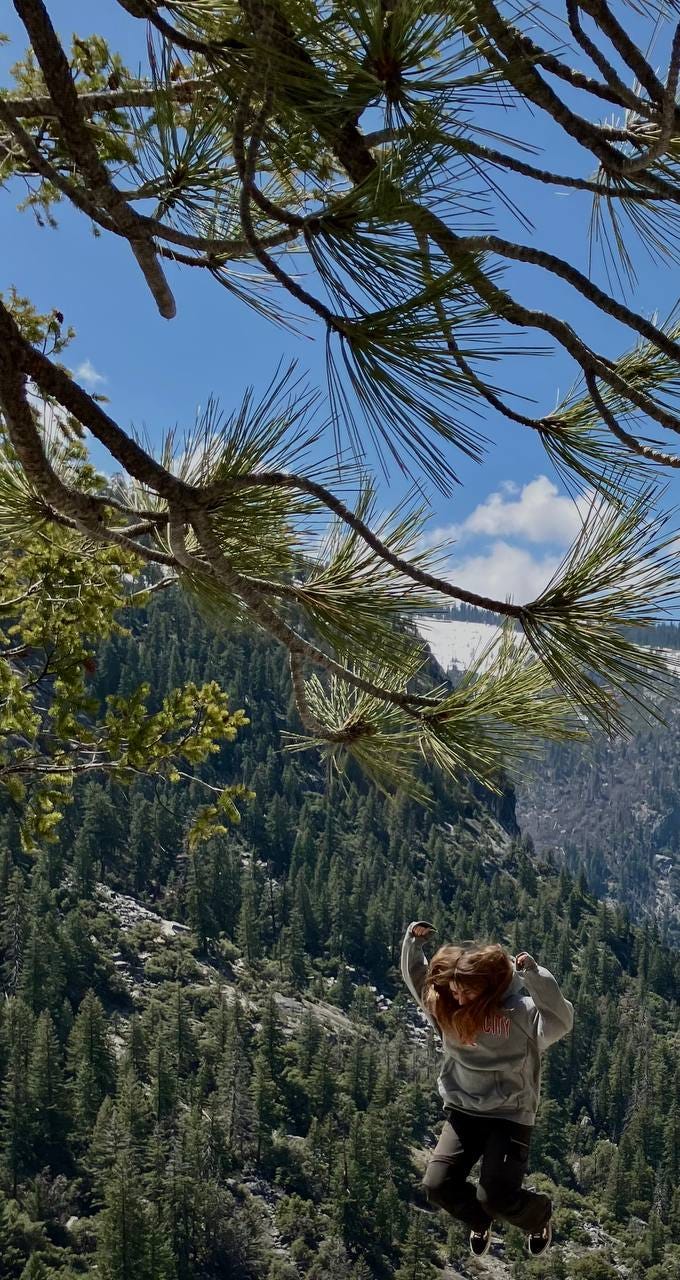

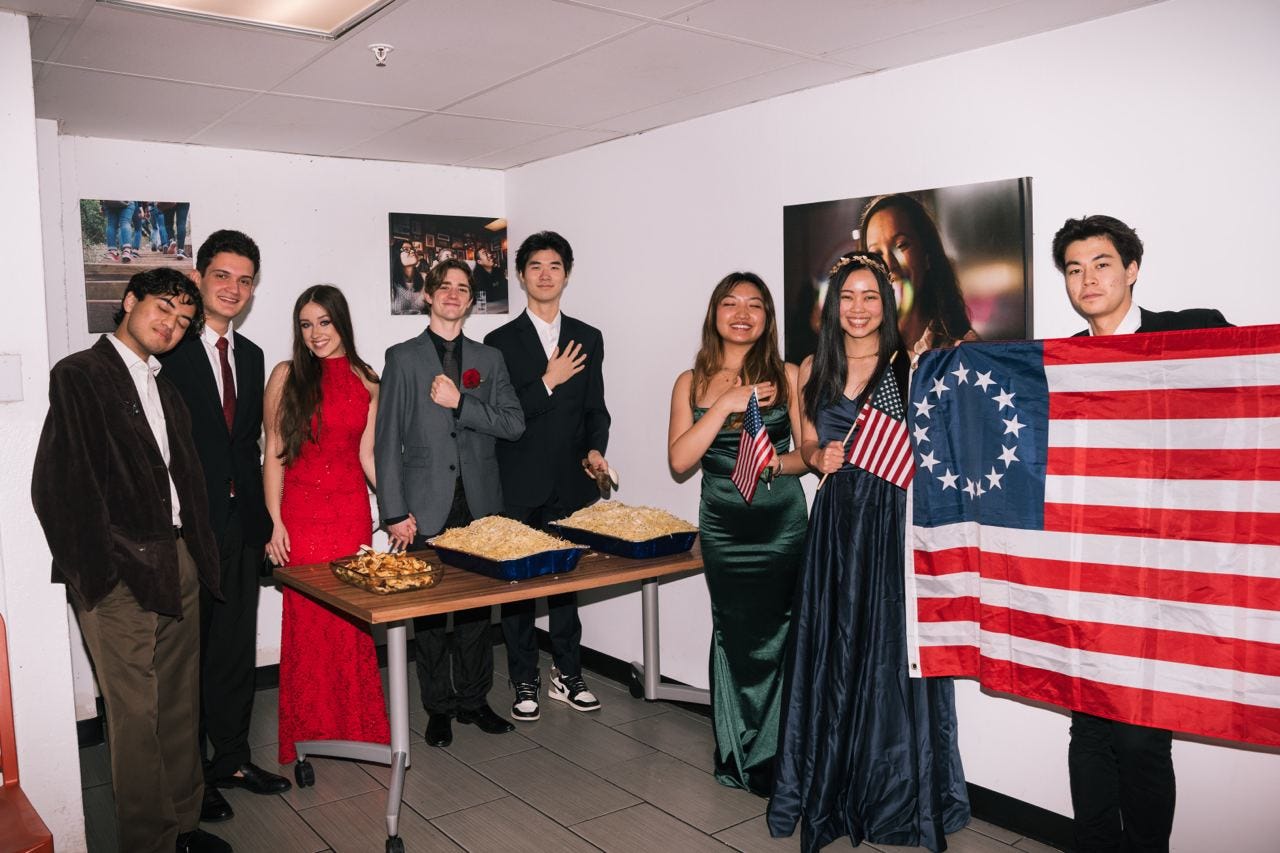
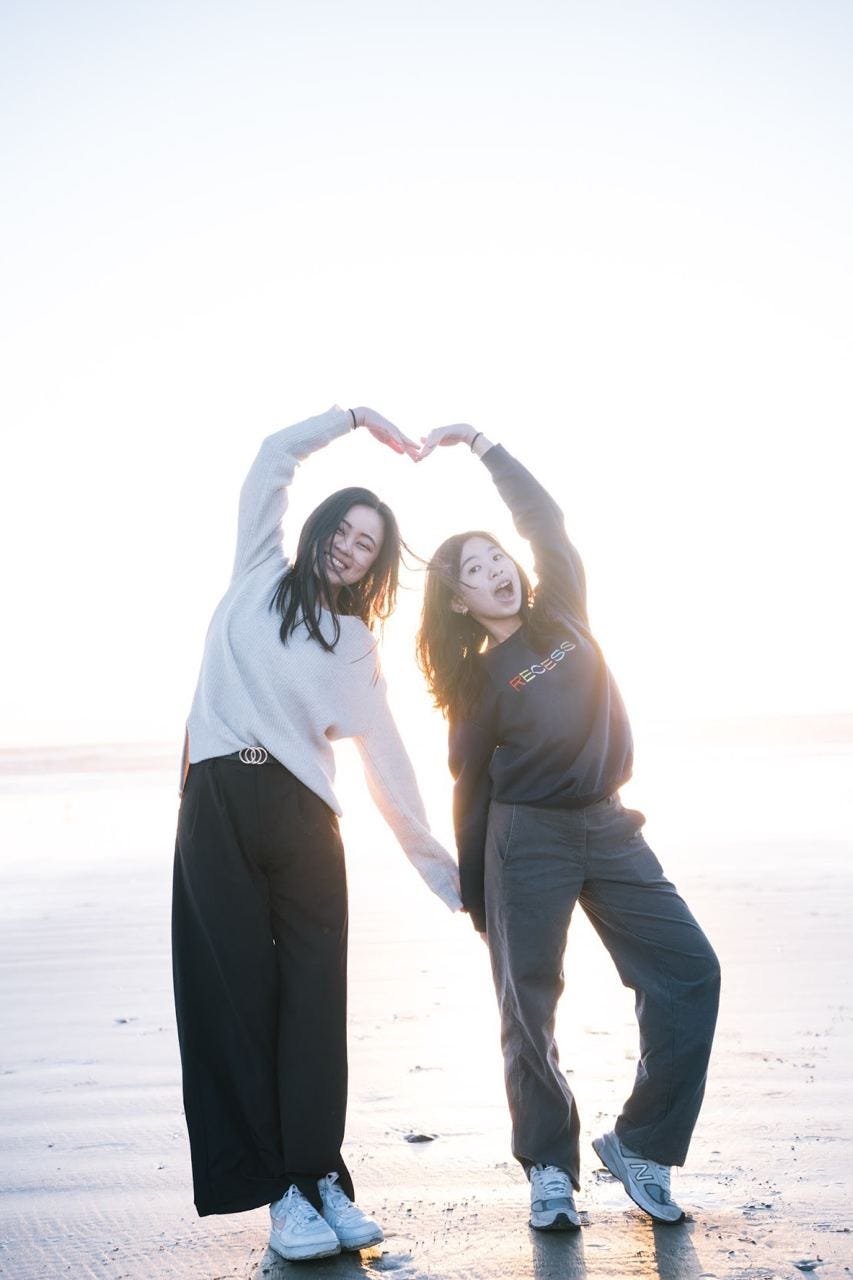

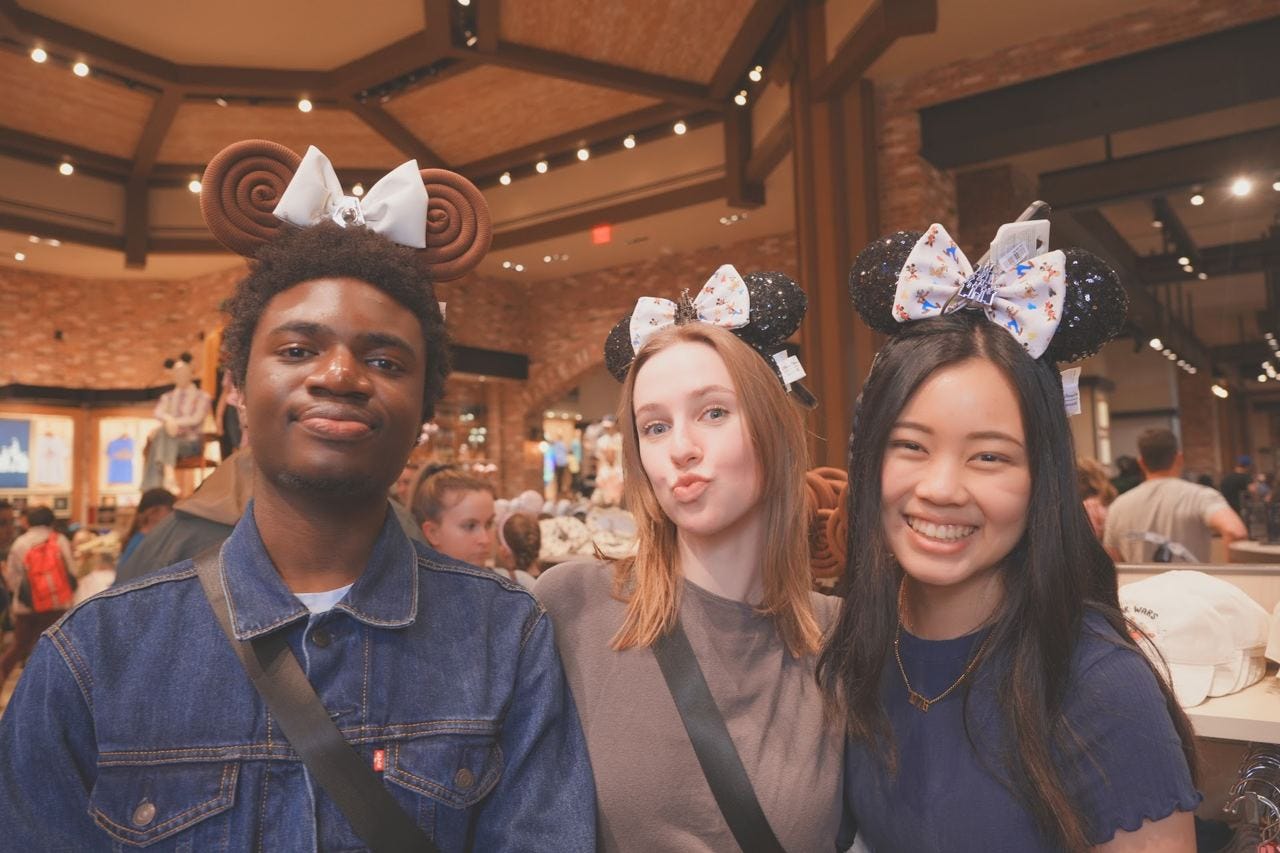
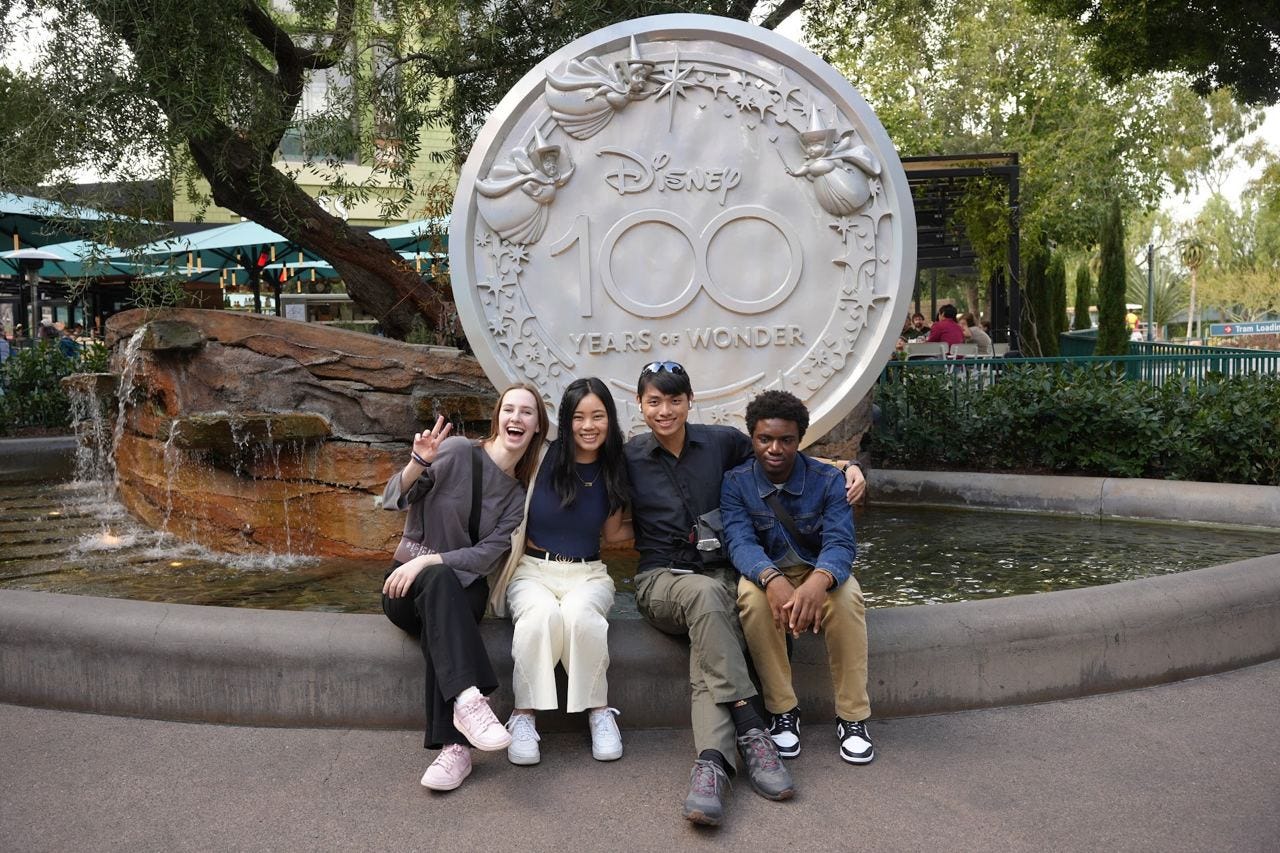
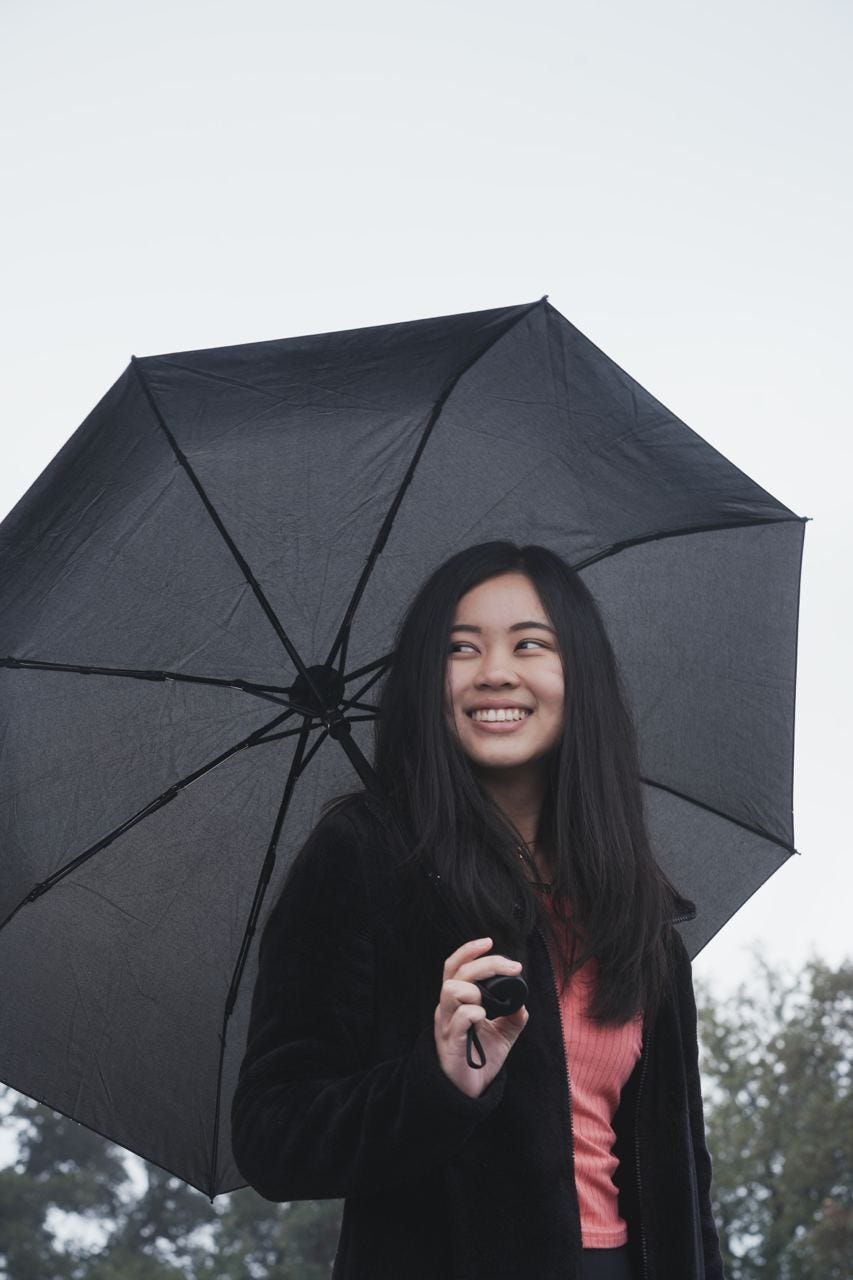

![The 4-Hour Work Week: Escape the 9-5, Live Anywhere and Join the New Rich [Paperback] Ferriss, Timothy The 4-Hour Work Week: Escape the 9-5, Live Anywhere and Join the New Rich [Paperback] Ferriss, Timothy](https://substackcdn.com/image/fetch/$s_!347T!,w_1456,c_limit,f_auto,q_auto:good,fl_progressive:steep/https%3A%2F%2Fsubstack-post-media.s3.amazonaws.com%2Fpublic%2Fimages%2Ff0c5e8e7-e62e-4bda-a8b7-9632489991bc_631x1000.jpeg)

